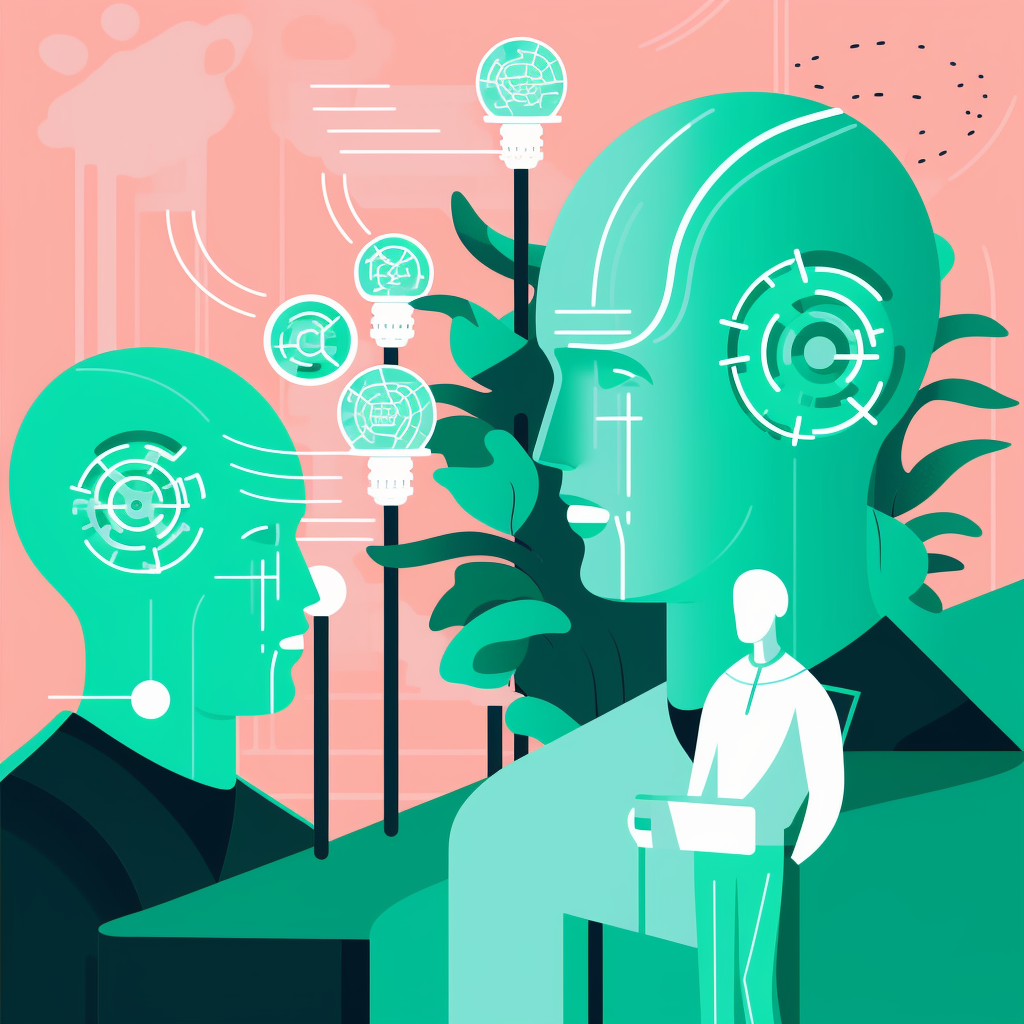Artificial Intelligence (AI) has become an integral part of our lives, powering various applications we use daily. In this blog post, we will discuss the intricacies of AI and explore its numerous uses, from machine learning to data analytics and green energy. We will also touch on the importance of datamining in AI and the rise of no-code solutions.
Table of Contents
What is Artificial Intelligence?
Artificial Intelligence refers to the development of computer systems capable of performing tasks that usually require human intelligence. These tasks include problem-solving, pattern recognition, learning, and decision-making. Some popular AI applications include machine learning, natural language processing, speech recognition, computer vision, and robotics.
When it comes to modern AI, one of the key technologies that make it possible is machine learning. It is a subset of AI that enables computers to learn and adapt through experience, without being explicitly programmed. Machine learning algorithms can analyze vast amounts of data to identify patterns, make predictions, and improve decision-making capabilities.
The Importance of Data Analytics
Data analytics is the process of examining, cleansing, transforming, and modeling data to extract useful information, draw conclusions, and support decision-making. In the context of AI,**data
analytics** plays a crucial role in creating more efficient and accurate AI systems. Without effective data analytics, AI systems would struggle to make sense of the data input and derive valuable insights.
One important concept in data analytics is predictive analytics, which focuses on using historical data, statistical algorithms, and machine learning techniques to predict future outcomes. Predictive analytics can help businesses forecast customer behavior, identify risks, and optimize operations.
Green Energy and AI

AI has the potential to revolutionize the green energy sector by improving efficiency, reducing costs, and making renewable energy sources more accessible. Some ways AI can contribute to green energy include:
- Predicting the output of renewable energy sources like solar power and wind turbines, allowing for better grid management
- Optimizing energy storage and distribution, ensuring a more stable supply of renewable energy
- Enhancing the maintenance of renewable energy infrastructure, reducing downtime and increasing efficiency
- Accelerating research and development of new clean energy technologies
AI techniques, such as machine learning and data analytics, can identify patterns in energy consumption data and give insights into how to optimize energy use, minimize waste, and implement more efficient energy management strategies.
Datamining and its Role in AI


Datamining is the process of discovering hidden patterns and relationships in large datasets through the use of machine learning, statistics, and other AI techniques. It plays a crucial role in AI development by enabling the extraction of valuable information from raw data. The insights derived from datamining can be used to improve AI applications, solve complex problems, and make better predictions.
Some areas where datamining contributes to AI include:
- Customer relationship management (CRM): Analyzing customer data to understand their preferences, behavior, and requirements better
- Fraud detection: Identifying unusual patterns and activities in financial transactions, helping prevent fraudulent activities
- Healthcare: Analyzing health records, lab results, and patient data for insights into disease prevention and treatment
- Marketing: Segmenting customer data to create targeted, personalized marketing campaigns
The Rising Trend of No-code AI Solutions
No-code AI solutions are platforms that allow users to build and deploy AI applications without writing any code. They typically provide drag-and-drop interfaces, pre-built models, and cloud-based services that make it easier to develop and deploy AI solutions. These platforms have gained popularity due to their simplicity, ease of use, and accessibility for non-technical users.
Some benefits of no-code AI solutions include:
- Faster deployment of AI applications: With pre-built templates and visual interfaces, creating and deploying AI solutions can be faster and more efficient
- Lower development costs: No-code platforms can significantly reduce the costs associated with hiring experts and outsourcing development
- Greater accessibility: No-code AI platforms enable individuals and businesses without technical expertise to create AI solutions tailored to their needs
- Encouraging innovation: By making AI development more approachable and accessible to a broader audience, no-code solutions can spur greater innovation across various industries
The Future of Artificial Intelligence
It’s evident that Artificial Intelligence has the potential to transform almost every aspect of our lives, from the way we work, play, communicate, and even how we approach sustainability and energy management. As AI technologies continue to advance and become more accessible, we can expect to see:
- Greater integration of AI into our daily lives, with more AI-powered applications and services making everyday tasks easier and more efficient
- Increased collaboration between humans and AI systems, with humans focusing on creative and strategic tasks while AI takes care of routine and repetitive work
- Continued advancements in AI research, with breakthroughs in areas such as natural language understanding, computer vision, and human-AI interaction
- Ethical considerations playing a more prominent role in AI development and deployment, with a focus on ensuring AI systems are transparent, unbiased, and respect users’ privacy
As we move towards an increasingly AI-driven future, the importance of understanding the underlying technologies and their potential impact cannot be overstated. By embracing the possibilities offered by AI, we can leverage its power to improve our lives, optimize processes, and create a more sustainable world.
To learn more about the fascinating world of Artificial Intelligence, we recommend exploring resources from reputable organizations like the Stanford Artificial Intelligence Laboratory (SAIL), a leading research center dedicated to AI and its applications.
In conclusion, Artificial Intelligence promises to bring about groundbreaking advancements in numerous fields, including machine learning, data analytics, green energy, and predictive analytics. Additionally, the rise of no-code platforms is making AI more accessible, empowering businesses and individuals to harness its potential. As we continue to uncover the power of AI, it is essential that we also address the ethical implications and strive to develop technologies that benefit society as a whole.



